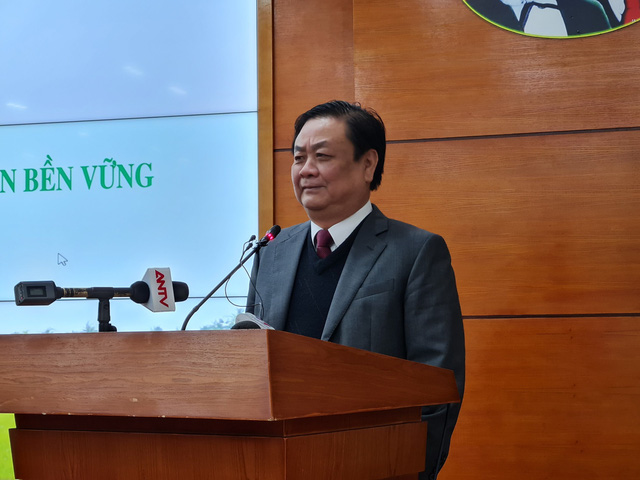Vietnam announces strategy to become world’s major farm producer by 2030
Vietnam’s agricultural production will focus on competitiveness and market demands.
The Ministry of Agricultural and Rural Development (MARD) has announced the strategy for Vietnam to become one of the world’s major farm producers by 2030.
Under the strategy, Vietnam targets the GDP growth of the agro-forestry-fishery sector to average 2.5-3% per year; productivity growth in the sector at 5.5-6% per year; and the expansion rate of farm exports at 5-6%.
| Minister of Agricultural and Rural Development Le Minh Hoan. Photo: Do Huong |
“The goal for Vietnam is to become one of the world’s top farm producers in the next decades with modern and environmentally-friendly agricultural processing sector,” said Tran Cong Thang, director of MARD’s Institute of Policy and Strategy for Agriculture and Rural Development said at the launch held in Hanoi last week.
According to Thang, policies on land use would be revised flexibly, along with plans to expand agricultural infrastructure in remote areas, including irrigation system for fishery and forestry; distribution system of wholesale centers and markets; logistics infrastructures such as ports and inter-provincial commercial hubs.
Thanh also stressed the necessity to form a system of major corporations investing in the production of strategic farm produce and bolstering the cooperation with farmers via different cooperation models; promoting farm cooperatives in close association with value chains.
Nguyen Van Viet, Director of MARD’s Planning Department, expected the close cooperation of ministries and localities in raising public awareness regarding the strategy.
Viet also called for solutions to create breakthroughs in land policies, including the formation of agricultural land trading centers. “This would help connect businesses and farmers in land utilization for greater efficiency in using natural resources,” he said.
At the launch, Minister of Agricultural and Rural Development Le Minh Hoan expected the farming industry to change its mindset from a production-oriented model to an agricultural economy, focusing on higher added value and production diversification based on value chains and market demands.
“Vietnam needs to move towards a green agricultural sector and ecosystem by effectively utilizing natural resources and environmentally-friendly technologies,” he said.
Hoan expected by 2030, the structure of Vietnam’s agricultural production would be set with a focus on its competitiveness and market demands.
Given a strong focus on sustainable development, Hoan called for a complete change of the distribution system that helps better connect retailers and supply chains, including a system of wholesale markets and logistics chains at key farm production zones.
In terms of exports, the minister noted it is imperative to continue taking advantage of free trade agreements to keep hold of traditional foreign markets and find new ones to avoid dependence on certain markets.
Overall, the strategy would help raise living standards, income, and the role of farmers, eventually promoting comprehensive development of rural areas along with the urbanization process for sustainability and prosperity, Hoan concluded.












